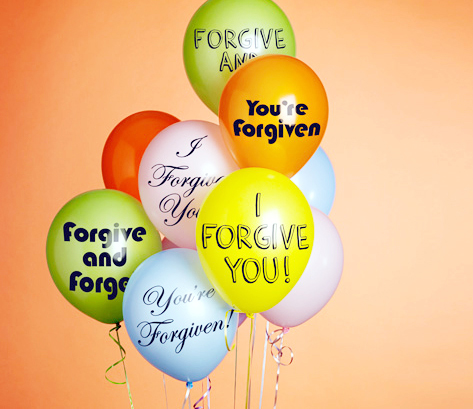Er. Vinod Verma
Even if we are forgiven thousand times, we can’t gauge the essence of forgiveness. We can, enjoy only when we learn to forgive. Forgiveness lies in not taking to heart another person’s faults. When we have forgiven another, we no longer bear grudges against him or have any complaints against him. The act of forgiveness gives us peace of mind so that we remain undisturbed. ”Let nobody take away my peace; I have to be selfless; I have to forgive.’ The person who does not try to forgive, suffers from intense pain, deep inside the conscience. He who forgives remains silent towards another’s transgressions and doesn’t develop any sort of irritations that ruin the inner peace and harmony and thus gains peace of mind. He is patient and courageous.
Actually we forgive ourselves, not the other. If another causes an offence, we become angry and wish to punish the offender. However destiny may decide otherwise and the offender may escape punishment. When one is unable to punish the other, unhappiness is automatically generated. The best thing is to forget many a times rather than going unpleasant with all others and when you forgive you always have an upper hand and divine spirit to follow. Sometimes it is good enough to let others forgive in order to maintain the peaceful environment inside your hearts and outside as well so that the irritations don’t smoulder into your heart and burn away inner peace. It is hard to forget but it is healthy to do it and then forego the actual line of action. To forgive and forget is not an act of charity nor a magnanimous deed. It is the right thing to do. It saves us from the barbs of criticism and shields us from the onslaught of our own violent actions and thoughts against others. Rather focus should be on the universal realities that compel and propel individuals towards certain actions and their results.
Everyman is a creations of the Creator. Can we control others? Should we try to hold the reins of other’s destinies in our hands when the Creator can manage it much better than ourselves? A tremendous effort is required to control one’s own actions and to transcend them. Without ‘sadhana’ it is difficult to control the self and to mentally dissociate oneself from one’s own actions or to change one’s inherent attributes. When it is so difficult for us to change, how can we expect a change from other? How often we place the cheque book of our own happiness in the hands of another?
Happiness is our birth right. Why should we give it away to offenders ? Forgiveness saves us from unhappiness. The grace of forgiveness retrieves for us the gift of happiness. We foolishly lose our happiness in the memory of another person’s faults, whereas the one who committed the mistake, has along since forgotten about it ! Why should we limit our vision and blind ourselves with our self made confusion ? It is better to forgive and forget. It is best to forego.
Our own thoughts are in reality our enemies. They urge us to take revenge on the wrong doer. Jealousy and its allies such as resentment, antagonism, bitterness, anger, discontent all becomes our constant companies. They censor and computerize our actions and reactions. If we keep on allowing it, a prison is created just because we didn’t choose to forgive and forget. If we do not forgive the one who has been the cause of some misdeed against us instead of love, hate will rule us. Instead of dwelling in beauty, ugliness will overpower us both within and outside and the positive thoughts will be ploughed over by the desire of revenge.
The divine qualities producing elegance, benediction, appreciation, gratitude and forbearance will give way to the negative colour which blurrs our vision.
It is much better to forget injury done rather than live in the memory of perpetual, dishonesty, concealment and fear of exposure which is veritable death. Thus having erased the memory of all attachments and the idea of ”I” and ” mine” we can approach life with a healthy and wise vision. Pick up a sponge and clean the slate called the mind. Sponge all the complexes and mental habits. It is these that clog the mind and rob us internal grace and happiness. Let there be no accumulation of such, thoughts, ideas, likes , dislikes, beliefs, experiences and their baseless concepts.
Forgive yourself: We do not have to forgive others for the sake of others. Forgiveness is practised for our own peace of mind. The smouldering fire of antipathy creates internal turmoil which leads to the fumes of anger that destroy our intellect and rationality. Let us make forgiveness so much part of ourselves that we can forgive anyone for injuries done to us. Let us relinquish all grudges and complaints and make a place for joy, harmony and peace.
Trending Now
E-Paper


